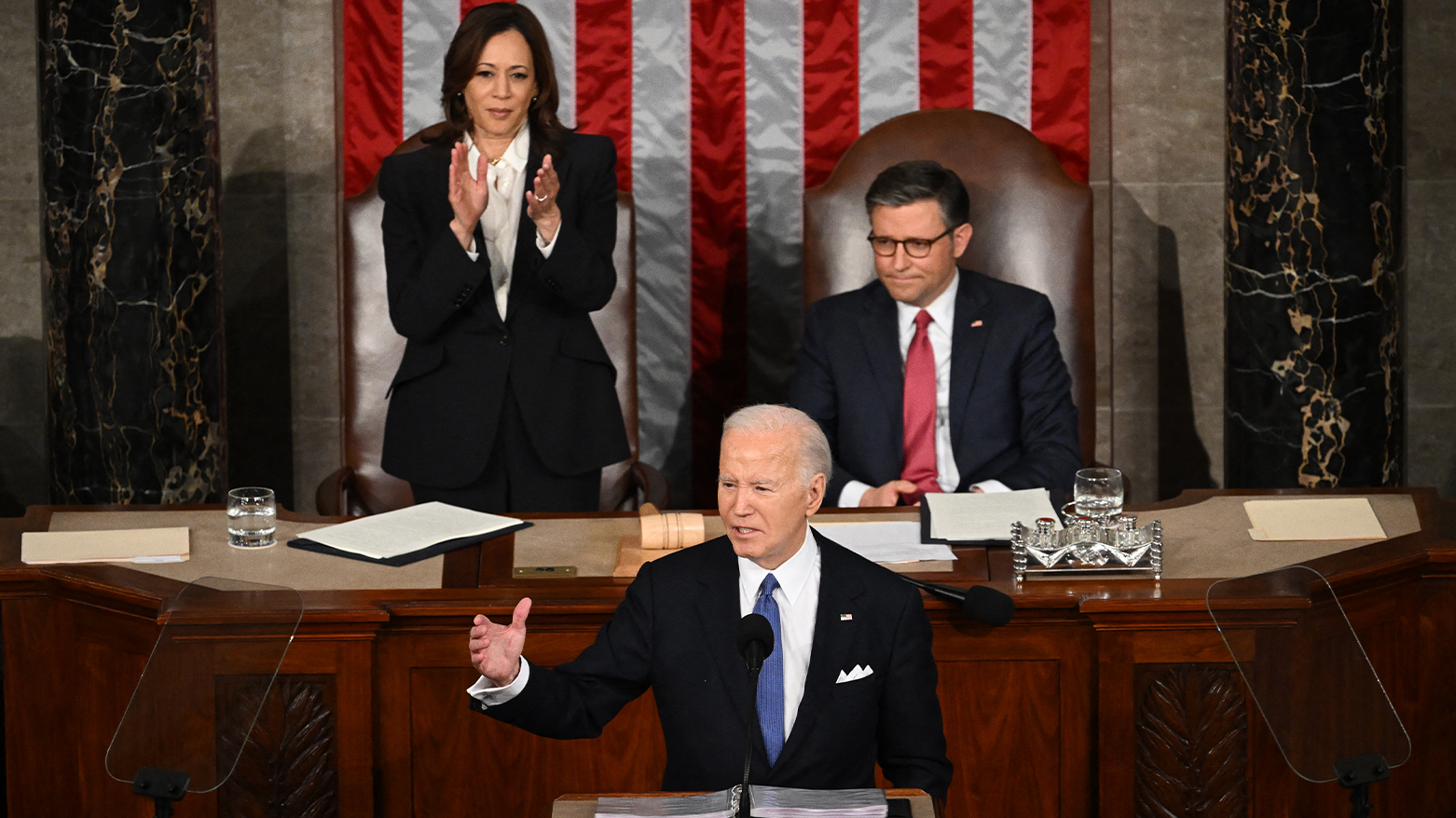Biden: Need to Contain ‘Threat Posed by Iran’

WASHINGTON DC, United States (Kurdistan 24) – On Thursday evening, Joe Biden gave the annual State of the Union address to the U.S. Congress.
That address is quite important, as a president typically describes his achievements over the past year and then what he plans to do over the next year.
Biden’s speech on Thursday was unusually political for such an occasion, evidently aimed at addressing concerns that he was too old, lacking in energy, and otherwise unsuitable to run for re-election.
Thus, The New York Times described the speech as “feisty and confrontational,” and a general consensus seemed to emerge that he had achieved that goal.
Thus, foreign policy was not a major focus of the speech, which addressed only a small number of national security issues—but Iran was one of them.
This point has, so far, not received the media attention it would seem to merit. Biden announced a new, much tougher stance toward Tehran.
New Iran Policy: Containment
After discussing the war in Gaza between, Biden affirmed, “Creating stability in the Middle East also means containing the threat posed by Iran.”
Senior figures in the Biden administration, let alone the president, had not previously described their policy toward Iran in terms of containment. Rather, when the Biden administration took office in January 2021, its top priority in the Middle East was to restore the Obama-era nuclear deal and otherwise improve ties with Iran.
That did not work out, however. Already by the summer of 2022, the Biden administration recognized that Iran was not so interested in reviving the nuclear deal, formally known as the Joint Comprehensive Plan of Action (JCPOA.) Rather, as the negotiations proceeded, Tehran kept demanding ever more concessions.
The European Union negotiator, Josep Borrell, nonetheless, remained keen on reviving the JCPOA, but the U.S. balked.
Read More: US remains cool to proposals for reviving Iran nuclear deal
Nonetheless, until quite recently, the Biden administration believed that its Middle East policy was rather successful. On Sept. 29, National Security Advisor Jake Sullivan told The Atlantic Festival, a two-day policy forum hosted by The Atlantic magazine, “The Middle East is quieter today than it has been in two decades.”
Sullivan attributed that relatively good situation to the administration’s policy, which was “to depressurize, de-escalate, and ultimately integrate the Middle East region.”
The Biden administration, thus, believed it had worked out a modus vivendi with Iran that kept the Middle East relatively quiet.
But that was illusory. Just eight days later, Hamas launched its brutal cross-border assault on Israel, killing some 1,200 Israelis and seizing 250 more as hostages, the majority of which remain detained.
As The New York Times later wrote, “Jake Sullivan’s ‘Quieter’ Middle East Comments Did Not Age Well.”
Iran and its militia proxies have increased their attacks through a broad swathe of the Middle East, including in the Kurdistan Region, as well as the rest of Iraq, in Syria, and, from Yemen, on international shipping.
As Washington’s highly-regarded Institute for the Study of War summarized the situation,“Iran and its so-called ‘Axis of Resistance’ are exploiting the Israel-Hamas war to support their objective of expelling U.S. forces from the Middle East.”
At least for now, the U.S.has managed to stop attacks by Iranian-backed militias on targets in Iraq, including the Kurdistan Region, and Syria. There has not been an attack in those two countries since Feb. 4.
Read More: U.S. Reiterates Continued Commitment to Fighting ISIS in Iraq, Syria
However, attacks by the Houthis on Red Sea shipping, which now number over 50, have continued, including an attack on Wednesday that struck a Liberian-owned, Barbados-flagged commercial vessel, killing one Vietnamese and two Filipino crew members.
The notion that the Houthi assaults have anything to do with the Israeli-Hamas war is a fiction, an excuse for their attacks.
On Thursday, Gen. Erik Kurilla, CENTCOM Commander, testified before the Senate Armed Services Committee. Sen. Dan Sullivan (R, Alaska) pressed him on the U.S. failure to stop the Houthi attacks.Sullivan noted that Kurilla’s deputy, Vice Admiral Brad Cooper, was recently asked whether the Houthis could carry out their attacks without Iran’s support.
“No,” Cooper responded. “The Iranians have been supplying the Houthis.” They are also “advising them” and “providing target information.”
Sullivan then pressed Kurilla—very hard—as to why CENTCOM did not sink the Iranian spy ship that was providing the target information. More specifically, as Sullivan put it, tell the Iranians and the Houthis, “The next time you target an American ship with an Iranian spy ship, we will sink that ship.”
That is, indeed, the most obvious way to stop the Houthis’ attacks and Kurdistan 24 has suggested it as well.
Read More: U.S. Condemns Lethal Houthi Attacks—but Response is Limited
But, as Kurilla explained, he would need permission from President Biden to attack the Iranian ship. it seemed, from the exchange between him and Sullivan, that such permission had not been given.
In his State of the Union address on Thursday evening, Biden affirmed, “I’ve ordered strikes to degrade Houthi capabilities and defend U.S. forces in the region.”
“As Commander-in-Chief,” Biden continued, “I will not hesitate to direct further measures to protect our people and military personnel.”
So it remains to be seen, if those words will translate into Kurilla’s orders, and if there will be more effective U.S. action to stop the Houthis’ attacks.
If Biden is really serious about containing Iran, that would seem a necessary step.
